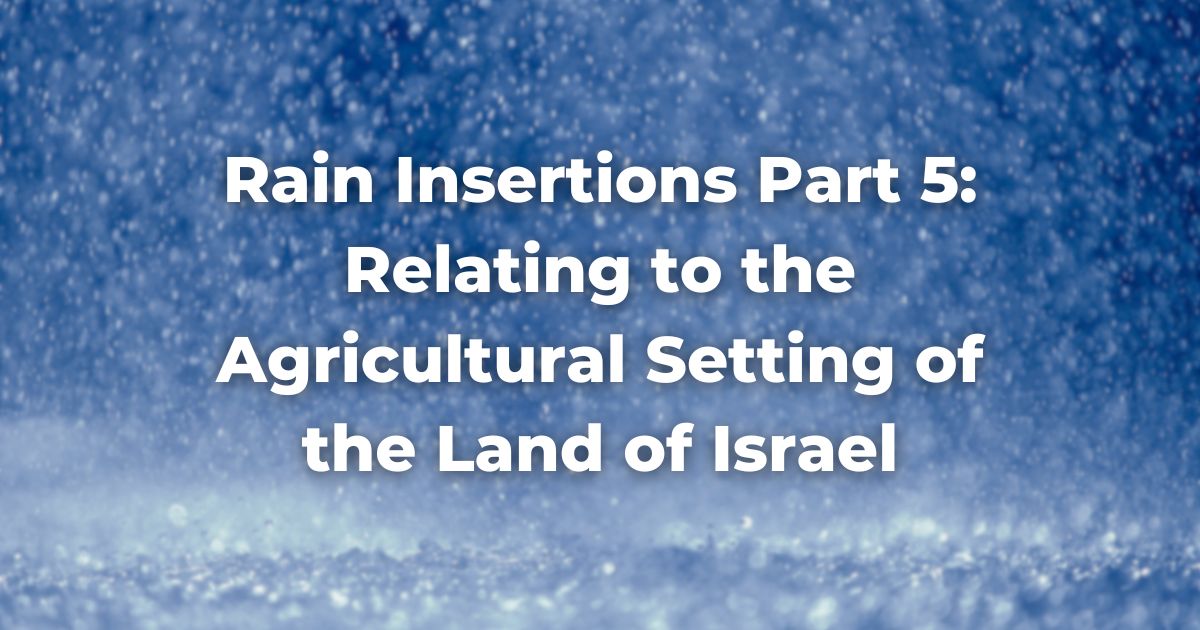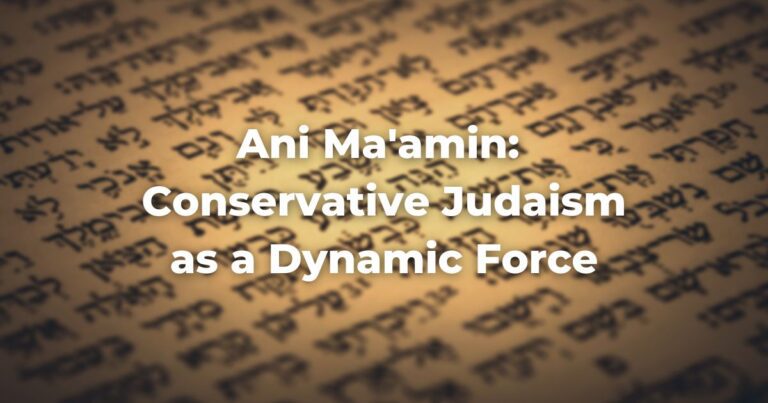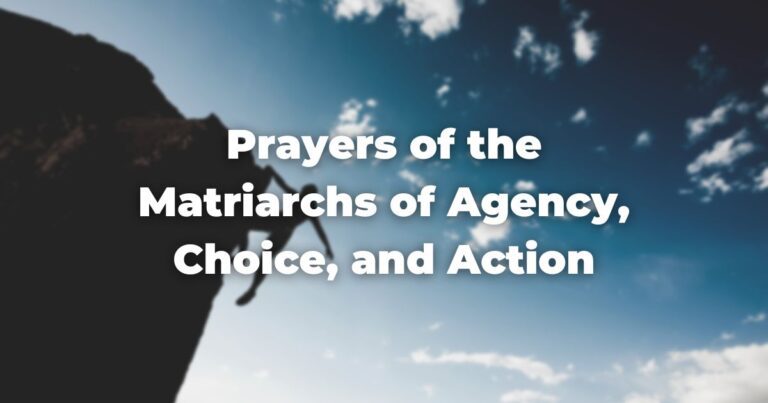In the diaspora of the present day, we begin requesting rain by adding Ten Tal uMatar into our Amidah on December 4th/5th. Despite its continued acceptance, it has long been recognized that this date, which originated as the custom of Babylonia, does not reflect the agricultural cycle of Jewish communities around the diaspora. And because of the calendrical issues discussed in the previous article, it no longer reflects the cycle of Babylonia. Yet few efforts have been made to change the practice. In this article, I hope to offer some explanation as to why this is the case.
Already in the 11th century, the French sage Rashi said that we follow the custom of Babylonia in the whole diaspora, and his position became dominant in all of Central and Eastern Europe. The Ritva in 13th century Spain allowed some communities to follow the custom of the Land of Israel, which is to start on the 7th of Marcheshvan, but not establish their own custom.
The only major opposition to this trend came from the Rosh (Asher ben Jehiel) in the 13th century. He tried to change the custom in a number of different communities through which he passed, to convince them to start saying Ten Tal uMatar earlier and to stop later. Every time he was rejected, although he was one of the greatest sages of his age. He even tried in a year of drought, when it was obvious rain was still needed, and was again refused.
The objections against the Rosh may be instructive. First, the residents of Ashkenaz (Northern France and Germany) objected: “אין עצירת גשמים מצוי שם והרבה פעמים התבואה מתקלקלת מפני רוב הגשמים” “Droughts are not common here, and many times the harvest is damaged by excessive rains.” Second, we consider the objection of Jews of Provence (Southern France). Unlike most of the diaspora, they followed the custom of Israel in starting on the 7th of Marcheshvan. When the Rosh tried to convince them to continue requesting rain after Pesach, they responded: “כך הנהיגו חכמים הראשונים ועל ההפסקה לא נוכל לעשות דבר בשנוי מנהג אם לא שיתקבצו חכמי הארץ ” “This [starting on the 7th of Marcheshvan] was the custom of our early sages [even though that’s not the diaspora custom], but we can’t change anything about the custom of stopping unless all the sages of our land come together.”
The difficulty of changing a custom tends to be especially severe in matters related to the calendar. It is worth remembering that the Babylonian custom was only established in the brief absence of a strong authority in the land of Israel and even then, only in the most powerful community of the diaspora. Communal leadership can be much more conservative in this respect than rabbinic leadership. Communal leaders are sometimes primarily concerned with how they are perceived by surrounding communities. It is no surprise that they wanted to see rabbinic consensus before they made any changes.
I would like to pay particular attention to the objection of the communities of Ashkenaz. Israel needs the rains to arrive and depart at particular times, but other lands without a dry season don’t necessarily work that way. The communities of Ashkenaz pointed out that where they lived, the fundamental relationship with rain was on a different axis than for the land of Israel. Ashkenaz might get rain all year, with no dry season, but might not want too much rain—or might need snow during the winter in addition to rain at other times. Some American communities might remember similar conversations arising when the calendar mandates that we request rain during times of severe flooding, for example.
We request rain by starting and stopping at certain times in the winter, but this doesn’t reflect the relationship to rain in the diaspora, so you can’t fix the custom for local needs by simply changing the times when you start and stop.
Through the course of these articles, we saw a series of developments in the history of the custom to request rain in the Amidah, as it was shaped by the historical circumstances of the Jewish people in every generation:
- Initially all of the needs and circumstances were unified in one prayer, tied closely to the cycle of agricultural festivals in the Land of Israel.
- Then, the practical request for rain was broken away from purely theological side of the question, creating a practice more closely tied to the local needs.
- In a period of waning Palestinian authority, the request was limited to a much smaller time period by an empowered diaspora community without a need for rain. For the diaspora, this effectively severed the request from its theological considerations, leaving the theology to be taken up in other parts of the tradition.
- Without the spiritual need driving the request for rain, and under the influence of Babylonia at the height of its power, the rest of the Jewish diaspora accepted their custom.
- As time went on, the date of the custom reflected the local needs less and less, but the imperative to make a change was gone.
In the diaspora today, as the calendars drift apart century after century, we are left with two insertions. One, Mashiv HaRuach, preserves the tradition of the land of Israel and theological ideas implicit therein. The second, Ten Tal uMatar, preserves the tradition of Babylonia as the great authority of the diaspora.
We should not, however, see the present situation as an archaic holdover, a pointless cleaving to tradition. There is wisdom hidden in the collective decisions of Jewish communities, whether through action or inaction. Just as it is essential for us to preserve Mashiv HaRuach as a reminder of our foundational theological principles, it is fitting to preserve the incongruous tradition of Babylonia as a reminder of how each Jewish community is different from the next. It reminds us every year of our differences from the Land of Israel and Babylonia, from Germany and France, and all the lands through which our ancestors passed. In each and every community we begin again to understand our individual relationship with God and God’s world.
Read the rest of the series on Rain Insertions here.
Author
-

Nadav Elovitz has been involved in Jewish communities and TorahRefers to the first five books of the Hebrew Bible, the Tanakh, also called the Five Books of Moses, Pentateuch or the Hebrew equivalent, Humash. This is also called the Written Torah. The term may also refer to teachings that expound on Jewish tradition. Read more learning throughout his life. He has been a gabbai in the past but has never had any official credentials, though he is interested in a wide variety of topics related to Torah and the Jewish tradition. He is from the Boston area and works as an engineer by day.
View all posts




